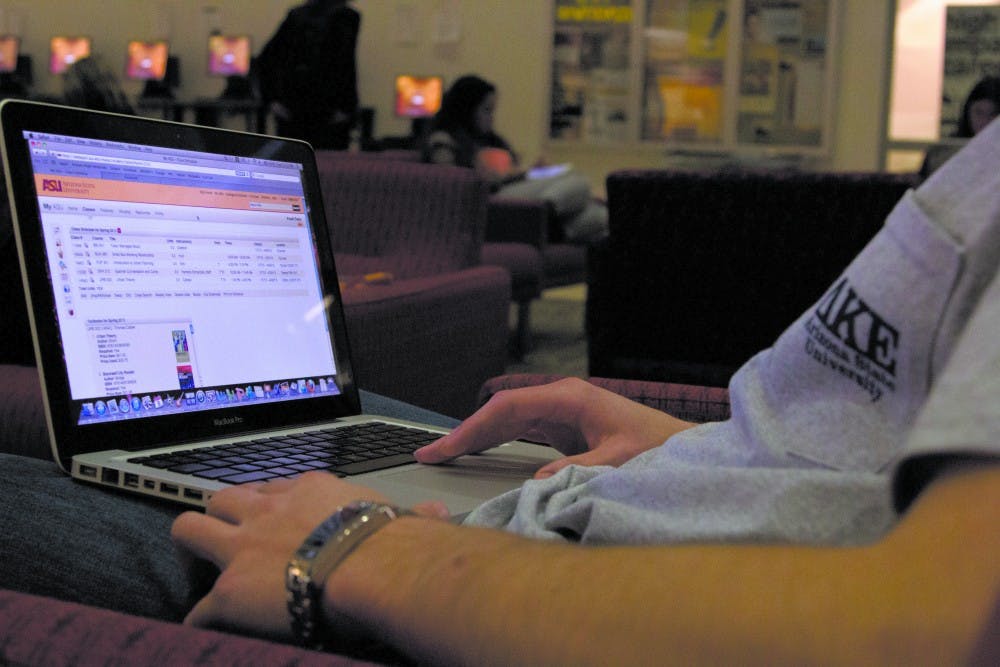 Students are not currently able to see how their respective professors did on their ASU evaluations, and some students have begun to complain because of it (Photo by Molly Smith).
Students are not currently able to see how their respective professors did on their ASU evaluations, and some students have begun to complain because of it (Photo by Molly Smith).Students wondering how past or prospective professors fared on end of semester evaluations can keep wondering, as the evaluation results are confidential, according to the University Office of Evaluation and Educational Effectiveness.
Art Blakemore, senior vice provost who oversees the UOEEE, said the evaluations are 99 percent complete, but students and the public cannot see the results because they are treated as "personnel data."
"The evaluations results have implications for merit salary increases and other types of personnel decisions and are a final component in the promotion and tenure decision, so they are treated as confidential because of the human resources element of it," he said.
He said most courses have different scales and ask different questions, so evaluating instructors across academic units would not be possible. However, there is no way to evaluate instructors across one course either, he said.
"I do know there are some non-official sites like (ratemyprofessors.com), but I have no idea how good they are," he said. "But there is no channel through ASU, because it involves personnel decisions."
The UOEEE is not looking into offering any type of program for students to see how their professors are doing, Blakemore said.
"We are getting the current procedures down really well, and we aren't thinking of branching out in any way at this point," he said.
Carol Kubota, an instructor in the American English Culture Program, said she thinks a program to allow students to see which professors are better than others is a good idea but might be hard to execute in an effective and unbiased manner.
"I really don't know how you can find out who is a good teacher and who is a bad teacher other than taking a class," she said. "If you ask your friends or people who took the class, one might say, 'Oh yeah, she's great,' and the other might say, 'Oh no, don't take that class.'"
Collaborative piano doctoral student Aimee Fincher said she has looked on ratemyprofessors.com out of curiosity, but has found that her professors who are "amazing at their jobs" have not gotten very good reviews.
"I think it is because freshman or people from different majors who have to take a general music class go on there and they aren't really a good judge of the professor's expertise or how effective professors are at teaching," she said.
She said she would like to see the University develop a method by which students from different majors can look into professors' teaching styles, so they can create better matches with their own learning styles.
Fincher said the class descriptions in the course catalogs are often too vague to figure out what the class entails and what the professor expects from students. She said she often resorts to emailing prospective professors to feel them.
"It would be really neat to be able to get better and more broad input on how classes are taught," she said. "I understand that there are confidentiality issues, but some more general and well thought out information on professors would be really great."
Blakemore said the faculty and deans can now see the results of the spring 2013 surveys, but they will not be used for annual evaluations until March or April of 2014. He said promotion and tenure decisions will begin in the fall for eligible faculty, at which time the results of the spring 2013 surveys will be considered.
"This material will be evaluated by department committees, department heads, college committees, deans and University committees and then the provost and president," he said. "It will go through a series of steps."
Reach the reporter at npmendo@asu.edu or follow him on Twitter @NPMendoza




